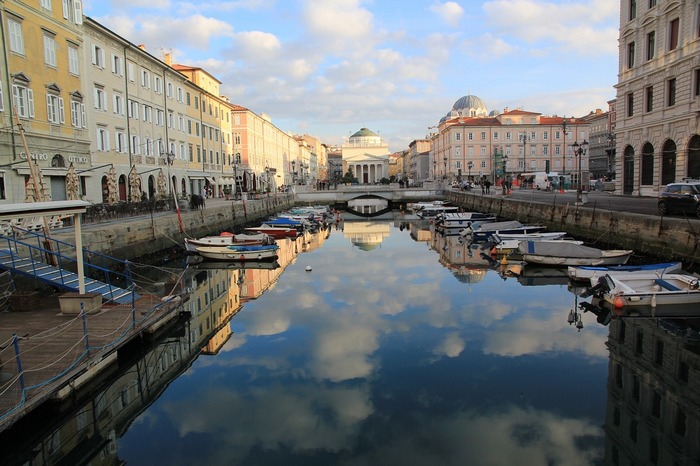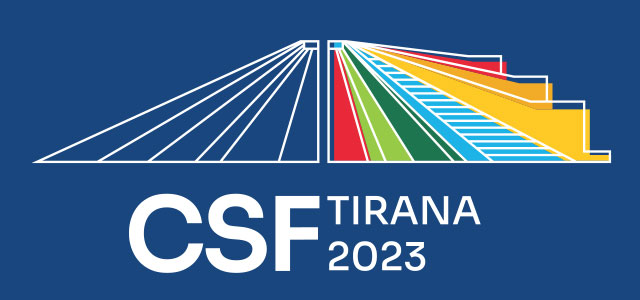Article in Danas daily: Civil Society of the Western Balkans at the Trieste Summit

To irreversibly integrate the Western Balkans into the European Union, citizens must feel ownership of the process. The Civil Society Forum of the Berlin Process provides for their participation.
The reforms in Western Balkan countries cannot be reduced to simply fulfilling the obligations related to their accession to the European Union. Mere law-making and “box-ticking” in action plans do not bring to the region such change that would secure the rule of law, decrease corruption, ensure the freedom of media, protect the rights of minorities, create a healthier environment, support the economic empowerment of citizens or in any other way make our societies European. When the processes of law and public policy-making fail to take into account the interests of all stakeholders – citizens, experts, trade unions, professional associations, even neighbours – the changes imposed by state administrations, through “top-down” measures, will hardly become part of political culture. For societies of the Western Balkans to come closer to the ones in the European Union, for the region to come closer to regions in Europe, a social consensus on the necessary changes must be in place, and it is only achievable when policies are planned and implemented in a way that involves the participation of citizens during periods between elections.
This is perfectly understood by the Berlin Process actors, as the Civil Society Forum is integral to the Process, which, ever since the Vienna Summit, has gathered the most prominent representatives of citizens’ organisations from the Western Balkans. While the economic, political and social projects initiated in the framework of the Berlin Process fuel regional cooperation and bring the Western Balkans closer to the European Union, the Civil Society Forum is an open platform securing civic participation in these processes. Dealing with the issues shared by the entire region, in line with the priorities of the annual Summits, associations of citizens, think tanks, institutes and other non-state actors of the Western Balkans collaborate on the preparation of recommendations to politicians, in the framework of the Civil Society Forum.
This is how the Declaration on Bilateral Issues and two related bilateral agreements were adopted in Vienna two years ago, following the initiative of civil society. For this year’s July Summit in Trieste recommendations have been prepared to further promote regional cooperation and bilateral relations, the rule of law and the fight against corruption, youth cooperation in the region and a better business climate for developing innovative enterprises, as well as recommendations related to the environment and climate change, and to more efficient communications of the Berlin process in the context of rising populism.
Alongside these issues, the meeting of the Civil Society Forum of the Western Balkans Summit will initiate the debate on migrations and media freedoms, and on the relevance of Brexit to the European perspective of the region. In addition to meetings with senior representatives of the Governments of the region and of member-states, Western Balkans’ civil society representatives will also meet with representatives of the European Commission and of the European Parliament.
Article in Danas daily: Civil Society of the Western Balkans at the Trieste Summit
27.06.2017
Photo: Pixabay
To irreversibly integrate the Western Balkans into the European Union, citizens must feel ownership of the process. The Civil Society Forum of the Berlin Process provides for their participation.
The reforms in Western Balkan countries cannot be reduced to simply fulfilling the obligations related to their accession to the European Union. Mere law-making and “box-ticking” in action plans do not bring to the region such change that would secure the rule of law, decrease corruption, ensure the freedom of media, protect the rights of minorities, create a healthier environment, support the economic empowerment of citizens or in any other way make our societies European. When the processes of law and public policy-making fail to take into account the interests of all stakeholders – citizens, experts, trade unions, professional associations, even neighbours – the changes imposed by state administrations, through “top-down” measures, will hardly become part of political culture. For societies of the Western Balkans to come closer to the ones in the European Union, for the region to come closer to regions in Europe, a social consensus on the necessary changes must be in place, and it is only achievable when policies are planned and implemented in a way that involves the participation of citizens during periods between elections.
This is perfectly understood by the Berlin Process actors, as the Civil Society Forum is integral to the Process, which, ever since the Vienna Summit, has gathered the most prominent representatives of citizens’ organisations from the Western Balkans. While the economic, political and social projects initiated in the framework of the Berlin Process fuel regional cooperation and bring the Western Balkans closer to the European Union, the Civil Society Forum is an open platform securing civic participation in these processes. Dealing with the issues shared by the entire region, in line with the priorities of the annual Summits, associations of citizens, think tanks, institutes and other non-state actors of the Western Balkans collaborate on the preparation of recommendations to politicians, in the framework of the Civil Society Forum.
This is how the Declaration on Bilateral Issues and two related bilateral agreements were adopted in Vienna two years ago, following the initiative of civil society. For this year’s July Summit in Trieste recommendations have been prepared to further promote regional cooperation and bilateral relations, the rule of law and the fight against corruption, youth cooperation in the region and a better business climate for developing innovative enterprises, as well as recommendations related to the environment and climate change, and to more efficient communications of the Berlin process in the context of rising populism.
Alongside these issues, the meeting of the Civil Society Forum of the Western Balkans Summit will initiate the debate on migrations and media freedoms, and on the relevance of Brexit to the European perspective of the region. In addition to meetings with senior representatives of the Governments of the region and of member-states, Western Balkans’ civil society representatives will also meet with representatives of the European Commission and of the European Parliament.
Although often implied, neither the Berlin Process nor its likely follow-up, the “Berlin Plus” are replacements for accession to the European Union; they are initiatives which should boost political, economic and social cooperation in the region and through this make it essentially European. Civil society participation in the processes of regional interlinking and in the implementation of projects in each of the areas dealt with through the Berlin Process serves to make sure that regional cooperation and the “Europeanization” of the region do not remain abstract concepts enforced by Brussels and domestic bureaucrats, but tangible initiatives and measures with content that can be influenced by citizens, and that will ultimately change their lives for the better. Because it is only when the citizens participate in political processes, in a manner like the one provided through the Berlin Process, that the Western Balkans will evolve from a political construct to a region that cooperates.
FacebookTwitterEmailMoreLinkedIn
Ana Marjanović Rudan, Advisor to the European Fund for the Balkans and coordinator of the Civil Society Forum of the Western Balkans
Although often implied, neither the Berlin Process nor its likely follow-up, the “Berlin Plus” are replacements for accession to the European Union; they are initiatives which should boost political, economic and social cooperation in the region and through this make it essentially European. Civil society participation in the processes of regional interlinking and in the implementation of projects in each of the areas dealt with through the Berlin Process serves to make sure that regional cooperation and the “Europeanization” of the region do not remain abstract concepts enforced by Brussels and domestic bureaucrats, but tangible initiatives and measures with content that can be influenced by citizens, and that will ultimately change their lives for the better. Because it is only when the citizens participate in political processes, in a manner like the one provided through the Berlin Process, that the Western Balkans will evolve from a political construct to a region that cooperates.
